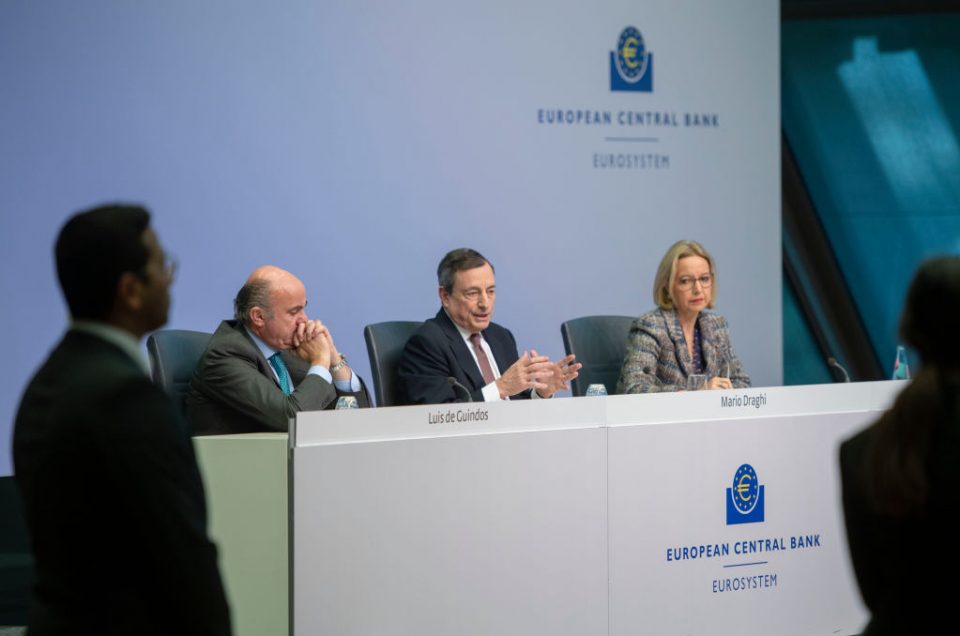Eurozone inflation slips to well below ECB target

Annual inflation in the Eurozone fell considerably in May, according to official statistics released today, taking it well below the European Central Bank’s (ECB) target.
Read more: The euro falls as ECB chief Draghi delivers pessimistic verdict on Eurozone economy
Inflation in the euro area fell to 1.2 per cent in May, a first estimate from the European Union’s data body Eurostat has shown, down from 1.7 per cent in April.
The figure is well below the ECB’s two per cent target, and will increase pressure on the Bank to delay its current plan to raise rates after the end of this year when it meets for its latest policy decision on Thursday.
ECB policymakers will contend with weak economic data – it forecasts GDP growth for the area of 1.1 per cent – and low inflation, increasing the chances interest rates will stay at their current record lows longer than expected.
Inflation in services, a major component of the Eurozone economy, dropped to 1.1 per cent last month from April’s reading of 1.9 per cent.
Core inflation, which takes out energy, food, alcohol and tobacco, fell to 0.8 per cent in May from 1.3 per cent in April.
The euro dropped against the dollar following the news, but was still 0.1 per cent higher shortly before 1pm UK time, to buy $1.125.
Eurostat data also revealed that unemployment in the 19-member zone fell to 7.6 per cent in April, its lowest reading since 2008. The figure compares to the 7.7 per cent rate seen in March and the 8.4 per cent of a year earlier.
The ECB has long struggled to push up inflation to its two per cent target, despite record-low interest rates, massive monetary stimulus since the financial crisis, low unemployment and wage growth.
“Surveys of firms’ hiring intentions point to annual euro-zone employment growth slowing,” said Christina Iacovides, assistant economist at Capital Economics. “As a result, we think wage growth has now peaked and that core inflation will remain subdued.”
“As energy inflation continues to decline, we think the headline rate will fall below one per cent soon,” she said. “We expect the ECB to strengthen its forward guidance on Thursday and loosen policy further next year.”
Stephen Hubble, chief analyst at Centtrip, said: “Potentially a lot is riding on the ECB’s rate decision and the press conference this Thursday.”
Read more: European Central Bank hikes supervision fees by 21 per cent as Brexit takes financial toll
“With Trump threatening tariff increases on Europe’s automotives, Mario Draghi could be forced to take further action to stem the tide,” he said.